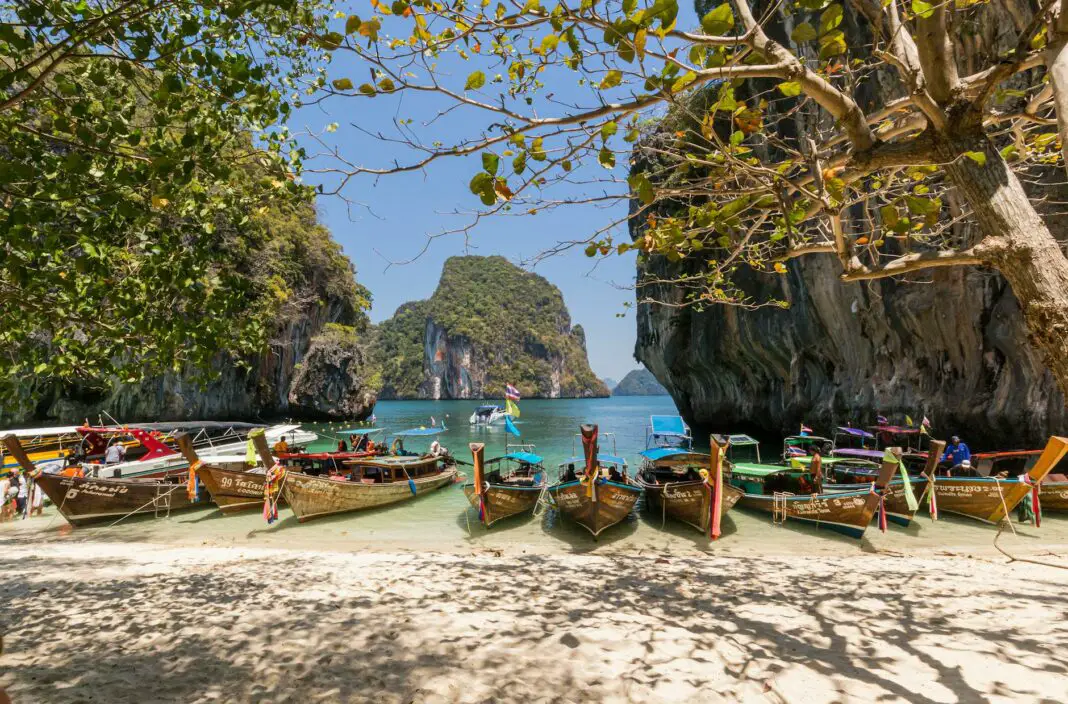**Discovering Thailand’s Hidden Treasures: The Eco-Tourism Revolution**
In recent years, Thailand has transformed its image from merely a party destination to a pioneer in eco-tourism, revealing countless hidden gems that naturally enchant travelers from all walks of life. The integration of eco-friendly practices makes this breathtaking Southeast Asian country a remarkable case study for how eco-tourism can transform entire regions, encapsulating both profit and preservation. This blog post explores how eco-tourism initiatives have brought about a refreshing change, highlighting less-traveled paths in Thailand that showcase nature’s beauty while cultivating a sustainable future.
Not only does eco-tourism in Thailand provide visitors with more authentic experiences, but it also empowers local communities and fosters a sense of responsibility towards environmental conservation. Across the nation’s pristine beaches, lush jungles, and majestic mountains, eco-tourism has opened up opportunities for unique adventures and cultural exchanges that captivate the imagination. Read on to discover the magic of Thailand’s hidden gems revitalized by eco-tourism and see how you can be part of this remarkable journey.
**Table of Contents**
1. **Eco-Tourism Defined**
2. **The Heart of Thailand’s Eco-Tourism Movement**
3. **Hidden Gems Awaiting Discovery**
4. **Sustainable Practices in Thailand’s Tourism**
5. **Tips for Eco-Friendly Travel in Thailand**
6. **Real-Life Impact: Success Stories**
7. **Embrace the Eco-Tourism Trend**
8. **Final Thoughts: Join the Eco-Tourism Revolution**
9. **Frequently Asked Questions**
**Eco-Tourism Defined**
Understanding eco-tourism is crucial for any traveler seeking to make a difference. Essentially, eco-tourism focuses on responsible travel to natural areas, minimizing impact on the environment, and promoting conservation. It encourages travelers to engage with local cultures while ensuring that their visit is beneficial to both the planet and local communities. This form of tourism varies from traditional travel methods by emphasizing sustainability, environmental education, and preservation of the ecosystems that travelers experience. Ultimately, eco-tourism fosters a deep connection between travelers and nature, creating a more meaningful journey.
**The Heart of Thailand’s Eco-Tourism Movement**
The rise of eco-tourism in Thailand can be traced back to grassroots initiatives that emerged in response to the increased awareness of environmental issues and the need for sustainable practices in tourism. As the effects of mass tourism became more apparent, including pollution and the depletion of natural resources, communities rallied together to shift towards eco-friendly alternatives. Through partnerships with local NGOs and eco-conscious businesses, a robust eco-tourism sector began to thrive, cultivating a profound respect for the local culture and the breathtaking landscapes that characterize this diverse nation.
**Hidden Gems Awaiting Discovery**
Thailand is rich in hidden gems that capture the spirit of eco-tourism. Places like Koh Yao Noi offer stunning vistas alongside sustainable accommodations, allowing visitors to immerse themselves fully in local culture. The picturesque village of Pai is another incredible find, renowned for its bohemian atmosphere and eco-lodges that integrate seamlessly with the surrounding natural environment. Off the beaten path, explore sites like Huai Nam Dang National Park, where lush forests invite treks, bird-watching, and stargazing under pristine skies. These hidden gems enhance the traveler’s experience, blending leisure with learning and bolstering the eco-tourism initiatives in these areas.
**Sustainable Practices in Thailand’s Tourism**
Sustainability isn’t merely a buzzword in Thailand; it’s integrated into every facet of tourism. Many businesses pledge adherence to eco-friendly practices by utilizing renewable energy, reducing waste, and sourcing local, organic products. Visitors can find eco-resorts that not only provide comfort and luxury but also install rainwater harvesting systems, solar panels, and organic gardens. Such implementations ensure that eco-tourism is not only a trend but a stable and long-term ambition for the nation. As a traveler, aligning with these sustainable practices amplifies personal contributions toward conservation and solidarity with local communities.
**Tips for Eco-Friendly Travel in Thailand**
Traveling responsibly in Thailand doesn’t have to be challenging; with a few mindful choices, you can become an eco-tourist. Consider using public transportation or renting a bike to explore cities and countryside, thus reducing your carbon footprint. Opt for accommodations that prioritize sustainability and support local businesses to ensure that your travel dollars help preserve the environment. Engage in nature conservation activities, such as beach clean-ups or wildlife workshops, in which you can fully immerse yourself while making a positive impact. Lastly, strive to educate yourself about local customs and biodiversity to foster appreciation for the rich heritage that these regions offer.
**Real-Life Impact: Success Stories**
Real-life examples abound of how eco-tourism has rejuvenated local economies and environments in Thailand. The success story of Chiang Rai is particularly illustrative, as local communities adopted sustainable farming practices to draw tourists interested in agro-tourism. By showcasing their agricultural traditions and offering hands-on experiences, these communities not only earned livelihoods but also cultivated awareness around sustainable farming. Similarly, Koh Lanta has become a model for marine conservation, with local initiatives protecting coral reefs from damage caused by overfishing and pollution. These successes underscore the transformative power of embracing eco-tourism, providing a roadmap for others to follow.
**Embrace the Eco-Tourism Trend**
It’s clear that tourists hold immense power in shaping the future of travel. By choosing to explore Thailand’s stunning natural beauty through the lens of eco-tourism, you champion a cause that benefits not just the environment but communities as well. The experience is not solely about visiting picturesque places; it’s about actively participating in conservation efforts that will resonate for generations. Thus, consider making eco-tourism your travel mantra as you embark on your next adventure in Thailand.
**Final Thoughts: Your Role in Thailand’s Eco-Tourism Adventure**
The transition toward eco-tourism has invigorated Thailand, allowing visitors to see the country’s true splendor while supporting sustainable practices and local communities. Rather than being passive observers, travelers can become active participants in this compelling narrative. By choosing eco-friendly accommodations, supporting local businesses, and engaging in conservation, your travel experience becomes intertwined with holistic, responsible practices. Take action today and contribute to a travel legacy that respects not only the breathtaking landscapes of Thailand but also the rich cultures and lives of the people who inhabit them.
**Frequently Asked Questions**
1. **What are some of the best eco-friendly accommodations in Thailand?**
There are several eco-resorts throughout Thailand that embrace sustainable practices. Look for those that utilize renewable energy sources, offer locally sourced meals, and provide educational experiences about the local environment.
2. **How can travelers support eco-tourism initiatives?**
Travelers can support eco-tourism by choosing eco-friendly tour operators, participating in conservation activities, and purchasing goods from local artisans. Additionally, sharing your experiences can inspire others to follow suit.
3. **Is eco-tourism only limited to specific areas in Thailand?**
While certain regions, such as Chiang Mai and Phuket, have prominent eco-tourism initiatives, many hidden gems exist across the country. Travelers can explore lesser-known destinations to discover eco-friendly practices blossoming in various locales.
4. **What activities are integral to eco-tourism in Thailand?**
Eco-tourism activities in Thailand typically include guided nature walks, wildlife tours, cultural exchanges with local communities, sustainable fishing experiences, and conservation programs focused on preserving natural habitats.
5. **Can eco-tourism benefit local economies?**
Absolutely! Eco-tourism enables money to circulate within local communities, leading to improved livelihoods and social development. By attracting visitors who are passionate about sustainability, these communities can invest in preserving their unique environments and cultures.
Image Credit: Pexels





